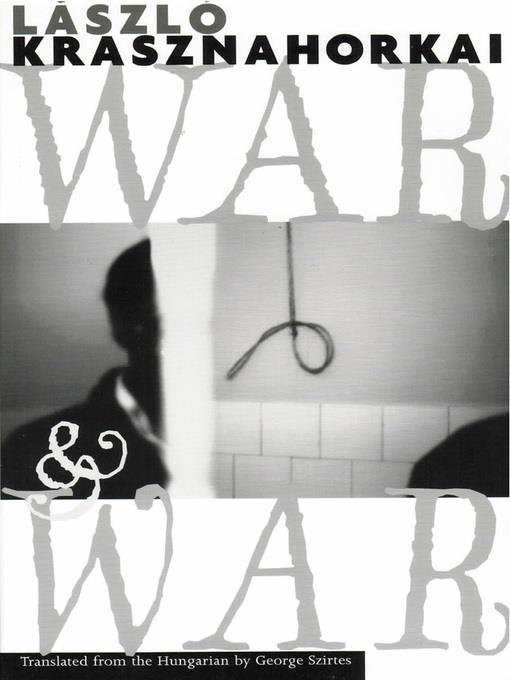
War & War
- اطلاعات
- نقد و بررسی
- دیدگاه کاربران
نقد و بررسی

April 17, 2006
Krasznahorkai's second English translation follows Gyrgy Korin, an arguably insane former clerk from outside Budapest who arrives at JFK airport with his life savings in his coat lining, determined to put a manuscript he discovered onto the internet (and thus preserve it for eternity), and then to kill himself. The manuscript's authorship is mysterious, and Korin's narration of its contents resembles his concerns, which he unleashes on unsuspecting strangers: "We pass things without any idea what we have passed, and he didn't know, said he, whether his companion knew the feeling." Though Krasznahorkai's sentences can run on for pages, a subversive aim underlies the rambling: many characters who swiftly dismiss Korin as insane, though better at affecting normalcy, are themselves vile. A sudden, brutal murder makes Korin seem more prescient than paranoid. This lucidity, however, is tempered by an epilogue that portrays Korin as more unreliable than anything prior suggests; Krasznahorkai aims for unsettling irresolution and nails it in a way reminiscent of Kafka.

April 1, 2006
In Krasznahorkai's second novel to be translated into English (after "The Melancholy of Resistance"), Gyö rgy Korin, a humble and possibly insane archivist, stumbles on an unknown manuscript, the story of four men who traverse several centuries on a mysterious quest. As if struck by holy fire, Korin makes it his mission to immortalize the text, journeying to -the very center of the world - -New York, of course. Along the way, he bends the ear of every stranger who will listen, and through their reactions to Korin's mad ramblings, Krasznahorkai creates a rich layer of self-reflexive commentary that speaks as much to his own idiosyncratic prose as it does to the manuscript within the novel. With each chapter consisting of one long, complex sentence, the novel bears stylistic comparison to the work of fellow Eastern European heavyweights Thomas Bernhard and W.G. Sebald. Difficult and appropriately maddening, the novel addresses profound themes -such as humanity's contradictory impulses toward creation and destruction -with power and historical sweep. Best known in this country for his work with director Bé la Tarr, Krasznahorkai deserves a higher profile. (Here's hoping "Sá tá ntangó "will be translated next.) Recommended where international literary fiction is in demand." -Stephen Sposato, Chicago P.L."
Copyright 2006 Library Journal, LLC Used with permission.




دیدگاه کاربران